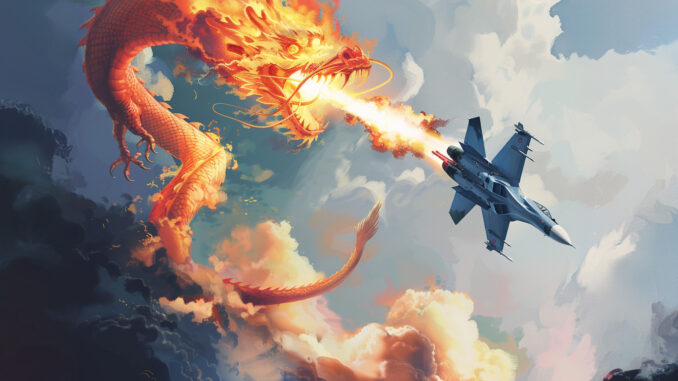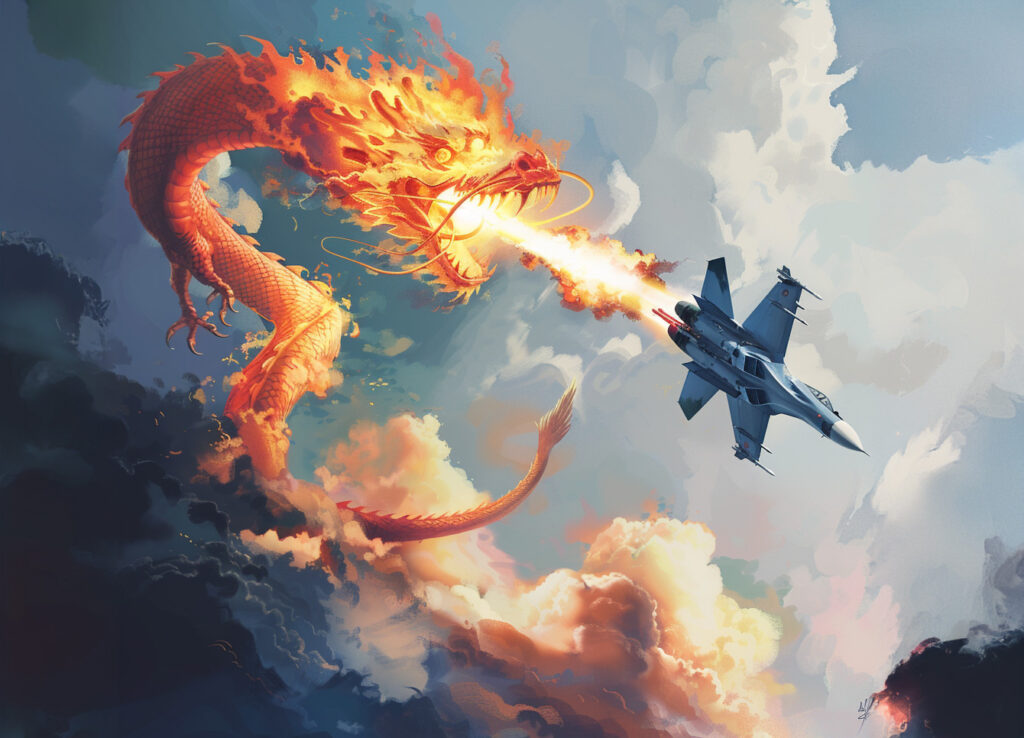
China has imposed sanctions on Lockheed Martin for its arms sales to Taiwan, citing a violation of its sovereignty.
China has imposed sanctions on several Lockheed Martin entities and three of its executives for arms sales to Taiwan, considered a violation of Chinese sovereignty. Although these sanctions are mainly symbolic, given the suspension of military cooperation between the United States and China since 1989, they highlight the growing tensions surrounding Taiwan. China continues to develop its domestic aerospace industry, while Taiwan relies heavily on US arms suppliers for its defence. Escalating tensions could lead to military action or an economic quarantine of Taiwan by China.
Background to sanctions against Lockheed Martin
Arms sales and geopolitical tensions
China has announced sanctions against Lockheed Martin in response to the company’s arms sales to Taiwan, which it considers a violation of its sovereignty. The entities affected include the Lockheed Martin Missile System Integration Lab, Lockheed Martin Advanced Technology Laboratories and Lockheed Martin Ventures. Executives James Donald Taiclet, Frank Andrew St. John and Jesus Malave are also banned from travelling to China.
These sanctions come against a backdrop of tense relations between the United States and China, particularly over the issue of Taiwan. China considers the island to be part of its territory and is firmly opposed to any military cooperation between Taiwan and foreign countries. In 1989, military cooperation between the United States and China was suspended following the repression of pro-democracy demonstrations by the Chinese People’s Liberation Army.
Symbolism and limited impact of sanctions
The sanctions imposed on Lockheed Martin by China are largely symbolic. As military cooperation between the two countries has already been suspended, the practical impact of these sanctions is limited. However, they reflect China’s determination to firmly oppose any foreign military aid to Taiwan and to send a clear message to the companies and governments involved in such transactions.
Advantages and disadvantages of sanctions
Sanctions enable China to strengthen its geopolitical position and assert its sovereignty over Taiwan. However, they run the risk of heightening tensions with the United States and further complicating bilateral relations. From an economic point of view, the sanctions have little direct impact on Lockheed Martin, but they could prompt other companies to reconsider their commercial relations with China.

Development of the Chinese aerospace industry
Growth of the domestic industry
China has invested heavily in developing its aerospace industry, producing parts and aircraft for Airbus and developing its own commercial jets. This strategy aims to reduce its dependence on foreign suppliers and strengthen its domestic industrial capacity.
Consequences for international players
The development of China’s aerospace industry could reduce opportunities for foreign companies in the Chinese market. In the long term, it could also enable China to become a major competitor in the aviation sector, particularly in the commercial aircraft market.
Taiwan’s reliance on US weapons
Current situation and defence efforts
Taiwan is heavily dependent on US arms suppliers for its defence. In response to the growing threat from China, Taiwan has stepped up efforts to strengthen its national defence industries and extend compulsory military service for men.
Implications of rising tensions
Rising tensions between China and Taiwan could lead to conflict scenarios. According to a report by the Center for Strategic and International Studies (CSIS), China could consider an economic quarantine of Taiwan rather than a direct military invasion. This strategy would aim to isolate Taiwan and force negotiations on unification, while minimising the risk of American military intervention.
Advantages and disadvantages of dependence on American weapons
Taiwan’s dependence on US weapons enables it to maintain a robust defence force in the face of Chinese threats. However, this dependence leaves Taiwan vulnerable to fluctuations in US-China relations and could limit its ability to develop an independent and sustainable defence industry.
US defence strategy
US Navy “Hellscape” plan
The US defence strategy includes plans to deploy thousands of drones around Taiwan to deter a Chinese invasion. The initiative, known as Operation Hellscape, would involve the use of submarines, surface ships and unmanned aerial vehicles to buy time for allies to mobilise.
Strategic consequences
This strategy could strengthen deterrence against a Chinese invasion and protect Taiwan. However, it also risks escalating military tensions in the region and provoking an aggressive response from China. The effectiveness of this strategy will depend on the coordination and speed of the response from US allies.
Advantages and disadvantages of the US strategy
Operation Hellscape could provide effective protection for Taiwan and deter a Chinese invasion. However, it carries the risk of escalation and could lead to direct confrontation between US and Chinese forces. Implementing this strategy would also require considerable resources and international coordination.
The sanctions imposed by China on Lockheed Martin highlight the growing tensions around Taiwan and the geopolitical challenges facing the United States and its allies. The development of China’s aerospace industry, Taiwan’s dependence on US weapons and US defence strategies are key elements in this complex dynamic. As the situation evolves, it is crucial for all parties to manage these tensions carefully to avoid an escalation that could have serious consequences for the region and the world as a whole.
War Wings Daily is an independant magazine.